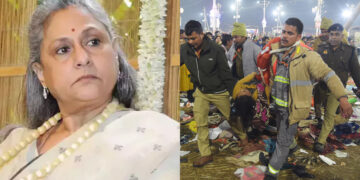![]() Follow Us on Google News
Follow Us on Google News
Veteran politician Begum Nasim Wali Khan, who passed away on Sunday, was a high-flying political leader of her time. She is remembered and quoted with positive words for her faith and belief in democracy, her just struggle for the supremacy of parliament, independence of judiciary, and for autonomous status of the federating units.
Born to an important figure in the Khudai Khidmatgar Movement – precursor of the National Awami Party (NAP) – Ameer Mohammad Khan Hoti, she married Khan Abdul Wali Khan in 1954. She entered politics when Z.A. Bhutto banned the National Awami Party, the major opposition party in 1975.
Her husband, Pakhtun nationalist leader Khan Abdul Wali Khan who led the NAP, was incarcerated, and the party declared an anti-state outfit. Cases against party leaders were filed in the Hyderabad Tribunal (1975-1979) — formed by Mr Bhutto to prosecute NAP leaders on charges of treason.
With its top leadership in jail, the opposition was in crisis. Naseem Wali Khan stepped in to fill the vacuum left by the absence of the NAP, fighting the case against party leaders. Begum Nasim Wali waged a tireless struggle for the release of her husband and his colleagues. She emerged as a major power-broker when she won two National Assembly seats from NWFP in 1977 general elections.
Begum Wali was the first woman ever to have become a member of the National Assembly in the history of Pakistan. This was no small feat considering that she came from the conservative culture of the then NWFP; that too at a time the entire political scene was dominated by male politicians. She also rescued, almost singlehandedly, her family’s political fate and legacy.
Not too long afterward, the Hyderabad Tribunal was disbanded and Wali Khan and others walked free. Later, she went on to become parliamentary leader of the Awami National Party (ANP) — founded in 1986. She was elected for four consecutive terms as MPA from Charsadda from the ANP platform, through the four general elections from 1988 to 1997.
Due to differences with ANP leaders, Begum Wali launched her own faction of the ANP in 2014 — the Awami National Party (Wali). She eventually reconciled with the rest of the party leadership, merging her faction back into the ANP led by Asfandyar Wali in 2017.
In the political history of Pakistan, the name of Begum Nasim Wali will always be written in golden letters. Begum Wali’s demise marks the end of an unforgettable chapter in the struggle for democracy. She was a fearless and dignified female leader that is hard to retain in practical politics.


























